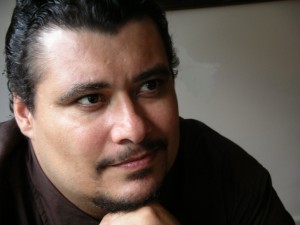
Miami Lyric Opera holds its own, traditionally
Today’s opera world is heavily influenced by the vision of the stage director, particularly in Europe, where theater visionaries (some successful, some not so much) have rethought stage works old and new in ways that use the plot as a stepping-off point rather than a reference.
Raffaele Cardone will have none of it. “We are very respectful to the libretto, we are very respectful to the composer, very respectful to the epoch,” Cardone said. “We try to maintain ourselves a little bit away from all these new ideas.”
Cardone is the founder of Miami Lyric Opera, which next week presents two performances of Giaochino Rossini’s greatest hit, The Barber of Seville, probably the most admired opera buffa of all time. It stars Nelson Martinez as Figaro, Lissette Jimenez as Rosina, David Pereira as Count Almaviva and Stefano de Peppo as Doctor Bartolo. The performances Aug. 18 and 19 will be in the Olympia Theater at the Gusman Center for the Performing Arts.
On Oct. 6 and 7, the company will present two additional performances of the opera at the Colony Theatre on Miami Beach. Cardone said it will be a traditional production, with none of the extravagant clowning that sometimes afflicts looser readings of this show.
“I think we have a great cast, and the people will enjoy this comedy very much,” he said.
Next March, the company opens its season with Georges Bizet’s Carmen, followed in July by Il Tabarro, the first opera of Giacomo Puccini’s 1917 triptych Il Trittico, not heard here, apparently, since 1989. It’s a gorgeous work set on a boat in the Seine River that tells the story of an adulterous affair that ends with a murder.
He’ll pair that with Gianni Schicchi, the third opera in the trilogy, and a comic masterpiece that also contains O mio babbino caro, one of the most beloved moments in all of Puccinian song. The title character is a schemer who’s brought in to help settle a will in favor of a greedy family, and who then is able to get the money for himself.
Mezzo-soprano Lissette Jimenez sings Rosina for “Barber of Seville.”
Cardone, a native of Bari, Italy, who had a career as a tenor in South and Central America before coming to South Florida to teach, founded Miami Lyric Opera in 2004.
“Our vision is growing in the direction that we have established from the very beginning, and this is exactly what I want,” he said. “I want a traditional opera company, a local opera company for Miami, by the Miamians, in Miami.”
That’s not to say that he wants it to be artistically anachronistic. He just thinks it has enough to offer as it is.
“What has been done with the opera all over is that it has gone too fast into a commercial type of business,” he said, adding that he understands the importance of doing good business in order to pay his costs. “I don’t say that (major houses) have kept people away from the theater, but they have not presented very much in the way of explaining to people what the opera is all about.”
And in its home country, opera has been a people’s medium. “When I was a child, people came in from the fields to see the opera,” Cardone said of his youth in Bari in the 1940s. “Of course, times were different. There was no TV and that sort of thing.” But there is still a hunger for good opera if it’s marketed sincerely, he said. “You have to be genuine with them, and promote the opera along that line.”
One of the other missions of the company is to find fresh talent, and Cardone said he “tries to mix young singers with experienced ones to give the younger ones an opportunity to grow.” And in the Lyric’s brief history, he’s had some fine voices come through.
They include Mario Chang, a Guatemalan tenor who sang the title role in Mascagni’s lovely L’Amico Fritz last year, and is now in the Metropolitan Opera’s Lindemann Young Artists Development Program. (Here he is with Brazilian soprano Daniella Carvalho in the Cherry Duet from that opera, in the Miami Lyric production of March 2011.)
“This is part of our mission. This is exactly the reason for our existence,” he said, noting that the larger companies bring in singers through professional talent agencies, “and then they leave, and nothing remains in the city. We try to do something for the people in Miami, in Florida, and from all over the nation who work with us,” he said. “We are proud of it.”
The region already has Florida Grand Opera and Palm Beach Opera, and a pleasant day trip to the west will bring you to Sarasota Opera, which is busily completing its monumental multi-year survey of all the operas of Giuseppe Verdi.
But Cardone says the area needs an alternative, and his small company holds its own by presenting faithful interpretations of classic operas. Its production of Puccini’s La Bohème in July 2010, for instance, was widely hailed, and Cardone says he thinks he knows why.
“We told everybody in the production to be there: To be there for the idea that Puccini wanted, to be there with the music, to be there with the voice,” he said. “And it came out great.”
The Barber of Seville will be presented at 8 p.m. on Saturday, Aug. 18, and 4 p.m. on Sunday, Aug. 19, at the Olympia Theater, 174 E. Flagler St., Miami; 305-372-0295; www.gusmancenter.org. Tickets range from $25-$45. Tickets to the October performances can be purchased on Ticketmaster.com. For more information about Miami Lyric Opera, visit www.miamilyricopera.org.
Recent Content
-
Artsarticle ·
-
Artsarticle ·
-
Artsarticle ·

